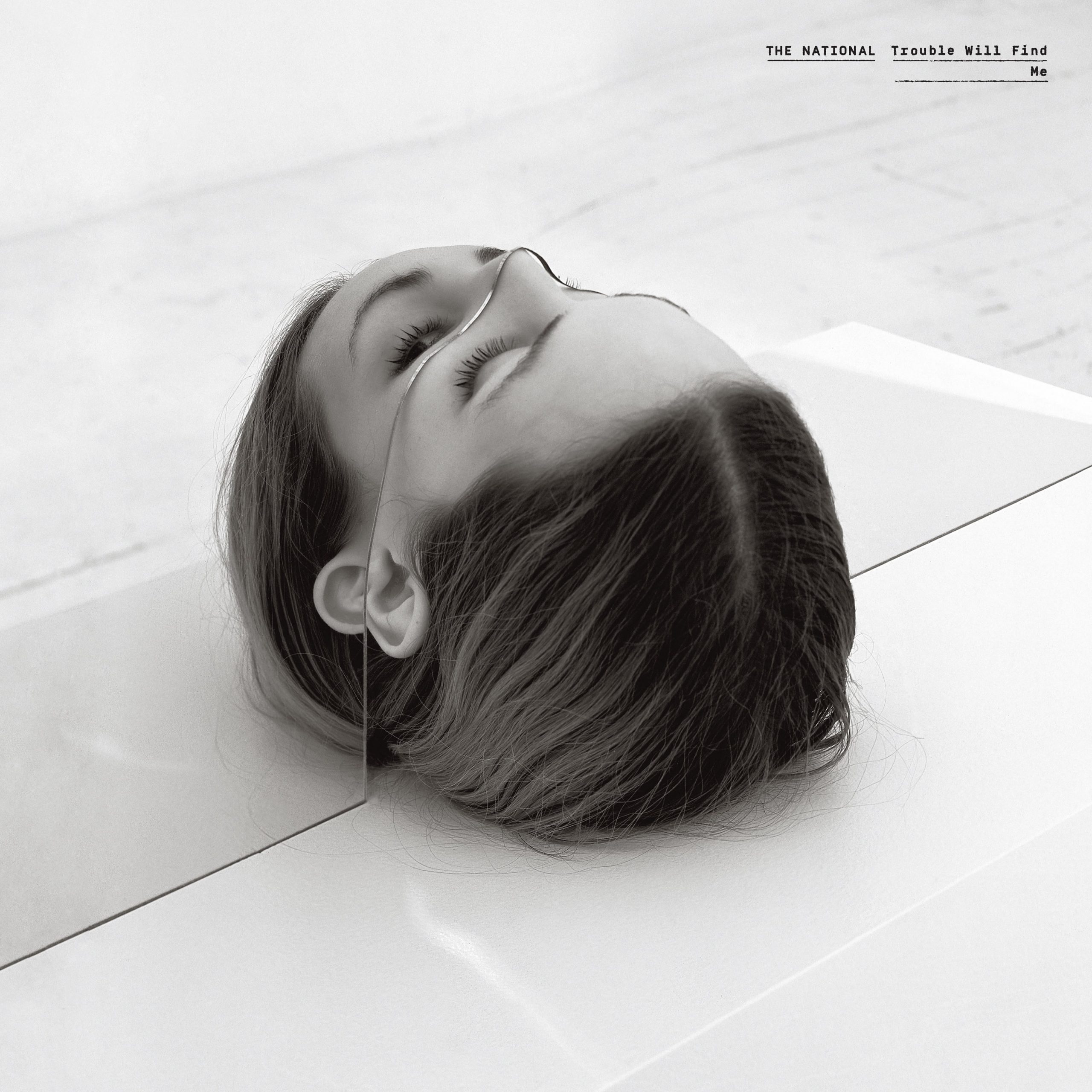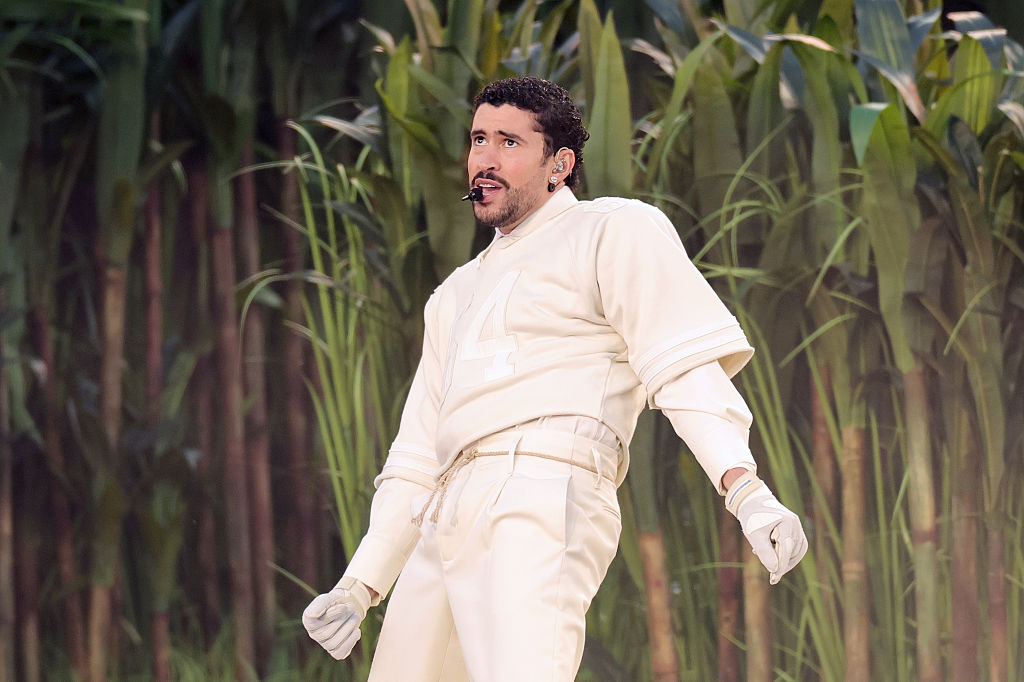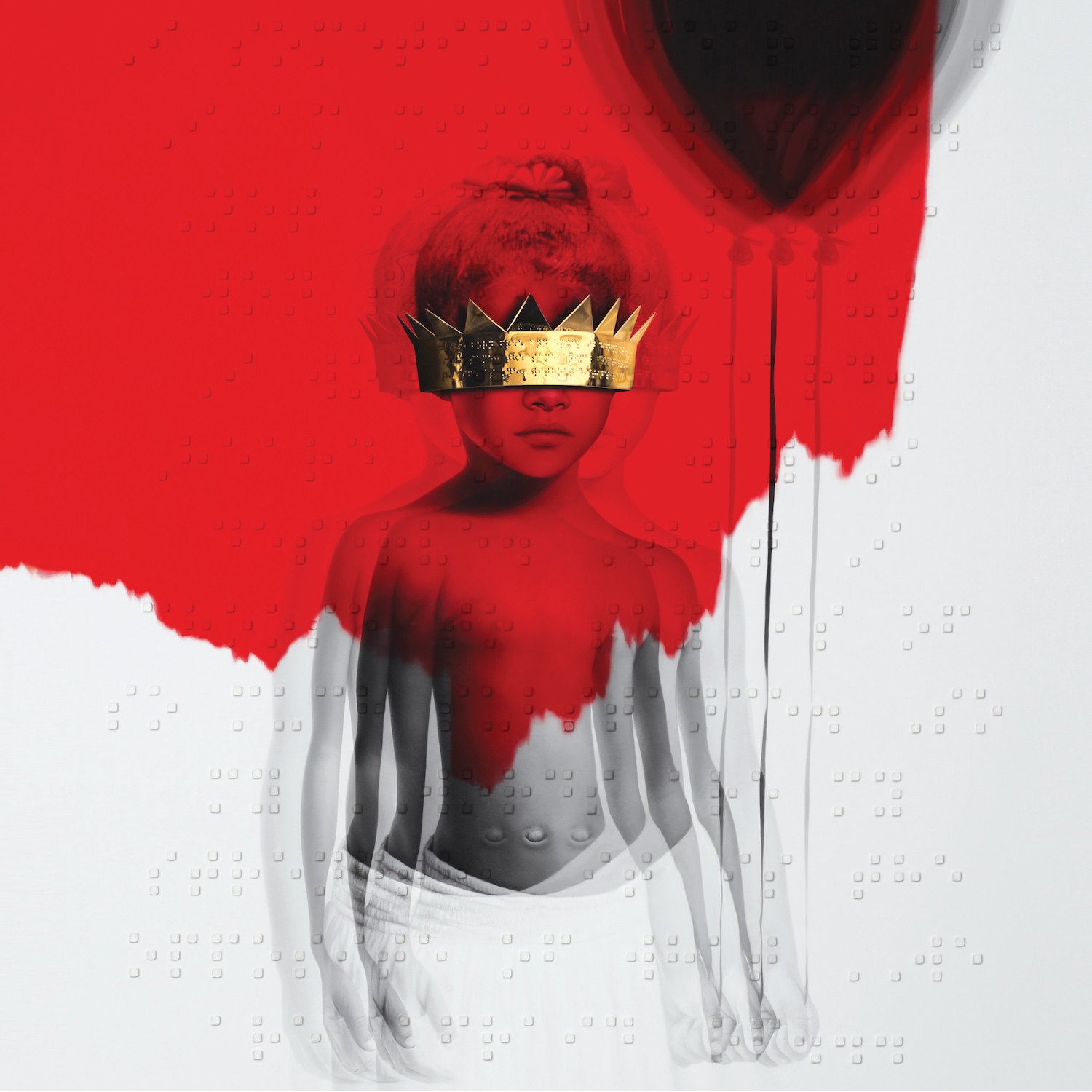- 4AD
- 2013
The day the National released Trouble Will Find Me was one of the hottest days I've ever experienced in New York City. At least, that's how I remember it, but I was also wearing a jacket and a tie and a gown. Nobody would've made the case it was a day for layering, but it happened to be my college graduation. Given how fundamental the band had been to my experience of moving to and living in New York during my college years, the cosmic overlap of their latest album arriving on such a momentous day was pre-ordained. But they injected just a bit more frantic energy into the thick air of that day: I spent most of the afternoon trying to muster focus or emotion over a graduation I didn't particularly care to attend, while receiving texts with updates of the National's own ceremony, a blitzkrieg of surprise shows spread across New York.
It was a milestone time for the National, too. After years of people waiting for the band to take off, 2010's High Violet had been amongst a crop of turning point releases, small-screen blockbusters from indie artists exiting the '00s on their way to becoming marquee names. High Violet wasn't just an underground hit the way 2007's Boxer had been; it was an actual chart breakthrough, debuting at #3 behind Justin Bieber and Lady Antebellum while quintupling Boxer’s first-week sales. So when High Violet’s follow-up arrived — 10 years ago today — it arrived to a proper fanfare. The band that was always "about to really make it" had made it, and they knew it.
On the morning of Trouble Will Find Me’s release, the band launched a series of surprise gigs that toured around locations important to their history. It was a victory lap down memory lane. The whole thing kicked off at Sycamore, the cozy Ditmas Park bar a few blocks from the old house Aaron Dessner had turned into a little recording haven. The next gig was at Williamsburg's Public Assembly, the site of the former Galapagos, where the band had cut their teeth in the '00s. Finally, a show at Mercury Lounge, a venue of particular importance to Matt Berninger.
At the time, Berninger told SPIN about how that venue was his version of CBGB, the place where he saw the Strokes and a version of New York he wanted to join. The National played there several times over the years, their first being a "terrifying" and "humiliating" early gig experience that nevertheless also gave Berninger a sense that they were on to something. It was the night he first felt like they were a "real band." They had never sold Mercury Lounge out until that Trouble release night when, of course, people were willing to go to extreme lengths to get in the door. Mere weeks later, they would play the actual New York show of the Trouble Will Find Me tour: headlining Barclays Center, a then-new arena that partially signified the new Brooklyn of which the National themselves were also symbolic.
In the end, I was at both shows. Sometime during my graduation, a friend texted me he managed to get two tickets for Mercury Lounge, against all odds. I figured it was a lost cause — today was my last day in NYC, and I was supposed to drive back to Pennsylvania with my family. But my dad encouraged me to go. I left my graduation dinner as soon as the bill came and took the train downtown for what I thought would be the last time, to cram in with — as the joke always went — a lot more bearded and bespectacled white guys in an ungodly sweaty Mercury Lounge, for a show that emphasized just how far the band had come. This was a feverish era of National fandom. There was still hype around them. People were losing it at Mercury Lounge. Removed from any context, it would've seemed like an exhilarating new band. But then I was back for Barclays so soon after, and there they were — arena conquerors after all these years.
This stretch of concerts would end up being a pivot: a nod and a farewell to the National we once knew — and an erstwhile version of Brooklyn that begat them — while a much bigger shift was afoot. This was a coronation.
Perhaps they had capitalized on some momentum, but initially the National had intended to take some time off. By the end of the High Violet cycle, they'd been on a nonstop run for about four years — releasing Boxer, bumps in notoriety thanks to "Fake Empire" in the Obama campaign and a tour with REM, yet another "breakthrough" with High Violet, more extensive touring, and a several night stand at Manhattan's Beacon Theater to put a final touch on a whirlwind. Berninger had a small child, and everyone agreed it was time for a breather, accepting the consequence that there might be a good long stretch between albums. Instead, taking the pressure off meant the ideas flowed freely. In the early months of their would-be break, Bryce and Aaron Dessner kept sending Berninger sketches to put on the shelf for when they gathered the following year. Berninger found himself inspired, and suddenly the band knew they were already making another album.
There are some other recurring narratives with the National beyond their incremental ascension. One that always comes around is that each album seems to push them to the brink of breaking up, or occasionally they talk about how, hey, we didn't want to kill each other this time. Berninger said Trouble was actually, god forbid, fun to make. The group had such an overflow of material, they talked about wanting to release a followup relatively quickly.
Berninger cited one song in particular as opening the floodgates. He responded to the track that would become "I Should Live In Salt" thanks to a simple strummed guitar figure, then uncustomary for the National. As an opener, it was a striking moment — Berninger pushing his voice in new directions, branching out from the trademark baritone sing-speak for a genuinely poignant and beautiful chorus. The song touched on his guilt about his relationship with his younger brother Tom and the idea he had left him behind, themes the two had otherwise explored in the pseudo-doc Mistaken For Strangers that came out right around Trouble. (Intended as a casual tour film and turning into a bemusing yet moving meditation on brotherhood and failure, Mistaken For Strangers was more of the High Violet era but also another factor that underlined the occasion of Trouble’s release — here were the National, debuting a movie at the Tribeca Film Festival.)
The same as you can hear the sweat and stress in every note of the infamously labored-over High Violet, you can hear the ease and confidence across Trouble Will Find Me. Sprawling out to nearly an hour in length, the album found the National settling into themselves, figuring out how to do their thing but even better. There was a flow and a glisten to it that hadn't been heard in their music before, and several songs beyond "I Should Live In Salt" that marked minute evolutions in their songwriting.
Many of these remain the highlights 10 years later. "Don't Swallow The Cap" and "Sea Of Love" were both brisk earworms, more unabashed and unburdened than any past "pop" track on a National album. Like "I Should Live In Salt," "This Is The Last Time" used a subtle premise — a rhythmic approach we weren't used to from them, basically — to powerful dividends. One of the great underrated National tracks, "Humiliation," was all twilit mystery, running on the forward propulsion we'd heard in plenty of past National songs but taking it somewhere unknown. Or, at least, to the West Coast. It also features one of those great Berninger lyrics where you don't exactly know what the hell he means but it becomes profound thanks to his delivery: "All the LA women/ Fall asleep while swimming/ I got paid to fish 'em out/ And then one day I lost the job."
How you respond to the rest of Trouble would depend on your tempo with the National. At 13 tracks, there were a whole lot slow-burners that toyed with formulae the band had used before. Some worked better than their antecedents; some were also-rans. "Fireproof" and "Slipped" are minor entries in the canon, while "I Need My Girl" would become a signature song that drives some fans insane. On the other hand, "Pink Rabbits" would become a signature song that seemingly all fans agree is one of the band's crowning achievements.
For a while, each National album reacted to the last. As they characterize it, Boxer’s restraint was a response to Alligator’s comparative rawness, and then High Violet’s expansive bombast was the heel turn from Boxer. Trouble Will Find Me was the first album since the National came into their own that was not about a leap, but refinement. For some listeners, this approach was not as immediately stirring.
It had been decided this was the National's time, but anecdotally speaking, I remember a more muted response to Trouble. It was the first time someone could say, "It's good, it sounds like a National album," and you couldn't really argue the point. As the Pitchfork review put it at the time: "Considering the National can no longer be compared to anyone besides themselves, it's fitting Trouble Will Find Me is their most self-referential album." Now we knew what to expect, and we knew to expect the National would do it well. In the span of one album cycle, they had gone from perpetual underdogs to establishment.
Ten years later, Trouble Will Find Me plays like the more sophisticated answer to High Violet. While the earlier album has some obvious National all-timers, it also feels weighed down. Maybe the peaks and valleys are less severe, but Trouble has maybe become the quintessential National album — it has a little bit of everything they do, summing up their past and dropping little hints at their future. Everything is calibrated just right. (Interestingly, the recent First Two Pages Of Frankenstein is another album the band said was easier to make, and it has a similar middle road ethos spiritually, with the band again attempting their version of a "something for everyone" approach.) When we compiled a list of the best albums of the 2010s, we were surprised to find — again, anecdotally — that at least some fan consensus seemed to have corralled around the idea that Trouble was the National's finest work of the decade.
This approach was fitting for an album that would, ultimately, become as much an ending as a beginning. When I interviewed the band between Trouble and Sleep Well Beast — and then again in 2017 for Sleep Well Beast itself — all of them talked about the idea that Alligator to Trouble was a four-album arc. That era had come to a close, and whatever came next had to explore new territory — hence the experimentation on Sleep Well Beast. You could quibble depending on which album you choose as the centerpiece of your argument; I've also made the case that High Violet was a fundamental turning point away from '00s National that set the template, in one way or another, for everything that followed. But in most ways Trouble Will Find Me felt like a culmination, and a powerful denouement to the set of albums that drove the National's rise.
Maybe the band didn't realize all of this on that day Trouble Will Find Me came out. Maybe they didn't realize that the celebration of the long, grueling road to that point was also going to be a goodbye. There were things they did discuss — that SPIN profile in particular tracing the band's maturation alongside the disappearance of the version of Brooklyn they once knew. In the immediate wake of Trouble Will Find Me, the band's story had been told, and the individual members scattered to new homes, started families. Their painstaking early days knowing they would never be as cool as Interpol or the Strokes would be belabored less, as their stardom came to eclipse many of the bands they once envied. Parsing whether they were a Cincinnati band, or a Brooklyn band, or really an American band, didn't matter so much when there was no one home and no one sense of identity — or when, again, the National could now only be compared to themselves. The reason Trouble Will Find Me arrived like a victory lap was because it was at the end of something. The National had graduated. They were on their own now.
We rely on reader subscriptions to deliver articles like the one you're reading. Become a member and help support independent media!






